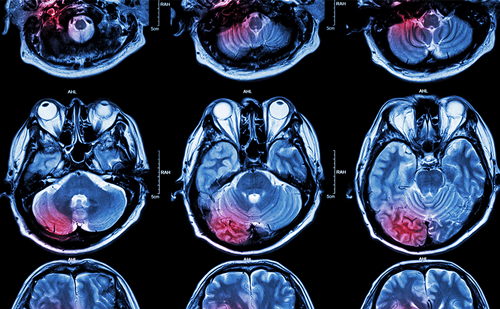As the 751 new European MEPs begin their term, the European Brain Council (EBC) is launching its Year of the Brain, calling for new thinking from policy-makers to take stock of the impact of austerity on health and wellbeing in Europe. The EBC works in partnership with patients, scientists, healthcare professionals, industry and policy-makers to harness science and innovation for better societal outcomes.
The economic crisis has put health back on the EU agenda. Austerity, low growth and demographic change are calling into question the sustainability of our healthcare systems. Between 2010 and 2060, age-related public expenditure in the EU is projected to rise by between 4.1 and 4.8 percentage points of GDP,1 with the majority of the increase accounted for by health and long-term care.2 Long-term care is described by the EC as, ‘the organisation and delivery of a broad range of services and assistance to people who are limited in their ability to function independently on a daily basis over an extended period of time’.
Within the European Semester (the EU’s new economic governance framework), the EC regularly issues recommendations for Member States to improve the ‘cost-effectiveness’ of their healthcare systems.
While the objective of sustainable health systems is critical, the emphasis in the European Semester recommendations has tended too much towards cost-limitation, with too little analysis of the outcomes that health systems deliver. Outcomes measures are limited to a number of ‘health status’ indicators, such as life expectancy, amenable mortality and infant mortality, while performance in specific treatment areas is not addressed.
The same emphasis on cost-limitation has been true of some national policies. Above all, Greece’s experience during the Eurozone debt crisis offers a salutary reminder of the dangers of ill-conceived spending cuts. Access to healthcare has been notably reduced by the combined effect of unemployment and the decision to cap health spending at 6 % of GDP – a figure agreed with the ‘Troika’ (the EC, the European Central Bank and the International Monetary Fund) as part of the Greek bailout programme.3
In future, the effectiveness aspect of ‘cost-effectiveness’ needs greater attention. To that end, we must look more rigorously at outcomes for both the patient and society, including the benefits that come from more active, productive populations and from less social exclusion.4 The recent EC Communication on ‘effective, accessible and resilient health systems’ defines effectiveness as ‘health systems’ ability to produce positive health outcomes’,We also need to recognise that investments made now (for example, in early diagnosis and prevention) can contribute to more sustainable health systems in the future.
Disorders of the brain, most significantly dementia, mood disorders (unipolar and bipolar), anxiety and addiction cost Europe €798 billion in 2010, more than any other comparable disease area.5 The study by Gustavsson et al. covers 19 groups of disorders: child/adolescent, personality, dementia, headache, mood, neuromuscular, brain tumour, traumatic brain injury, psychotic, multiple sclerosis, addiction, somatoform, epilepsy, Parkinson’s disease, sleep disorders, anxiety, stroke, mental retardation and eating disorders.They afflict more than a third of European citizens (127 million people), and will only become more prevalent as our populations grow older. Brain-related disorders are, therefore, a main element in the sustainability challenge.
To make the transition to an outcomes-focused approach, we first need to understand how well our health systems currently perform. For that we need data, to provide us with indicators and benchmarks of best practice. In the area of mental health, the Organisation for Economic Co-operation and Development’s work on assessing the performance of health systems provides an excellent starting point.6
However, data alone are not enough. We also need a readiness to make investments that will deliver better outcomes and improve effectiveness in the future. EU Health Ministers recently acknowledged that ‘investing in health should be acknowledged as a contribution to economic growth and social cohesion’. 7
Poor health is a major cause of absenteeism (at a cost of 2.5 % of GDP a year),8 people falling out of the labour market (10 % of people left their jobs mainly for health reasons)9 and activity limitation (on average, 20 years per European citizen).10
From a financial perspective, the message is clear: by improving the health of our citizens, we can enable them to live more active and productive lives, to the benefit of all our economies, including our public finances.
The EBC welcomes the initiative of the Italian Presidency to invest in the health area of the Europe 2020 strategy review, which will renew EU targets for smart, sustainable and inclusive growth.
Sweden has led work to measure the cost-effectiveness of investments in health, taking into consideration the work of the OECD, World Health Organization (WHO) and the EC. This work should continue and be shared.11
EU health ministers have also stated that ‘enhanced economic policy coordination may necessitate stronger co-ordination at EU level in the field of health’.12 Given its relevance to the sustainability challenge, action to address brain-related disorders must be a high priority.
EBC is now launching the Year of the Brain, which will bring together a multidisciplinary group of leading medical specialists, patient representatives and industry. The group’s goals are:
- to educate society about how to nurture and protect the brain and how to prevent brain disease;
- to improve care and treatment access for those affected by brain disease; and
- to increase investment in brain-related research and development for the benefit of future generations.
EBC advocates coordinated actions at EU level, including:
- Supporting partnerships to identify disease management programmes that deliver cost-effective diagnosis, prevention and treatment. Reward for, and an understanding of, good science will also be essential.
- Developing an EU Chronic Disease Action Plan to help reduce the burden of disease and deliver better outcomes. We have been engaged in the EU’s Chronic Disease Summit Initiative and, together with leading physicians, have demonstrated to policy-makers at national and European level the value of stroke prevention. The diagnosis and treatment of atrial fibrillation (AF) (the most common form of irregular heartbeat) could save countless lives with modest investment. An estimated 70–80 % of AF-related strokes could be prevented, if diagnosis and treatment consistent with international guidelines were universally offered, but this is currently not happening across Europe. The summit called for the establishment of a coalition ‘involving all relevant sectors across society, patients and citizens, to address chronic diseases’.13
- Sharing knowledge and best practice. The second joint Initiative on Innovative Medicines (IMI), a public-private partnership (PPP) between the EC and the European Federation of Pharmaceutical Industries and Associations (EFPIA), is an excellent example of this. Building on its successful first phase (2008–2013), IMI2 aims to fast-track the development of the next generation of medicines, especially in areas where there is an unmet medical or societal need as identified by the WHO report, ‘Priority Medicines for Europe and the World’. IMI2 will expand the partnership to all players in the health ecosystem.
More broadly, EBC will support politicians in advocating a longerterm perspective on health systems reform to address sustainability. Crucially, this should focus on the outcomes for the patient and society, recognising the value of investing in health, rather than the cost alone.
The new European research-funding programme, Horizon 2020, with its focus on cross-cutting thematic approaches, is a significant step in the right direction. The innovations we see coming through for the prevention, diagnosis and treatment of brain diseases based on genetic make-up offer great opportunities. However, Europe’s incoming policymakers need to consider new, more flexible approaches to clinical trial design, marketing authorisation and pricing mechanisms to ensure early access by patients to these valuable innovations.
We look forward to working with regulators and payers towards an increasing focus on outcomes, encompassing both the effectiveness and efficiency of diagnosis and care, be it for stroke, multiple sclerosis, brain tumours or psychiatric disorders. Patient participation in drug development will assist the assessment of what is acceptable in terms of risks and side effects. An informed patient is also more capable of self-managing his or her disease, making a contribution to cost-effectiveness. EBC is also vigilant about ensuring that the drive for austerity does not undermine the regulatory framework, which safeguards patient safety.
We look forward to working with the Commission and Parliament in the next five years to ensure that the Year of the Brain’s legacy will be a healthier, more productive and more efficient Europe.












